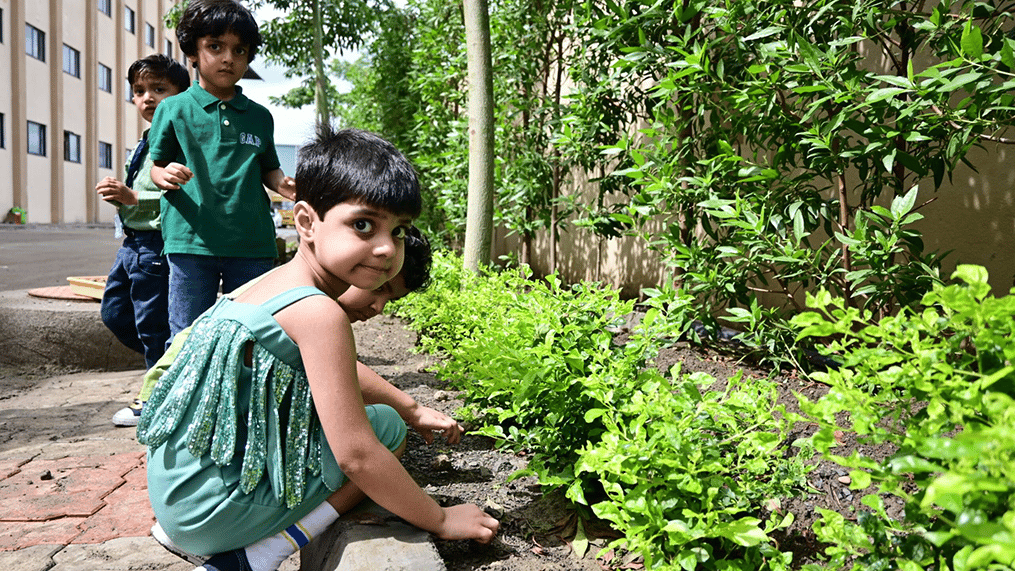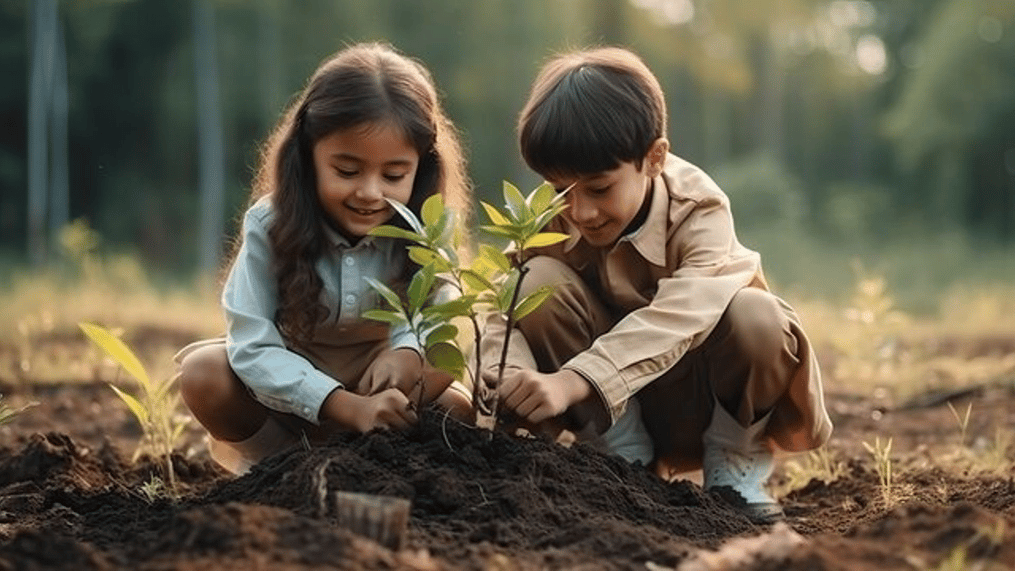- Shared Responsibility
- Communication
- Division of Tasks
- Problem-Solving
- Sharing Knowledge
- Celebrating Successes
- Building Relationships
- Organize Fun Roles and Responsibilities
- Set Exciting Goals
- Open Ways For Communication
- Let Kids Make Teams
- Add Creative Problem-Solving Solutions
- Celebrate Wins
- Let Kids Learn About Empathy and Respect
- Let Your Kids Use Tools
- Learn And Reflect Together
Introduction

Gardening is not just a hobby but a learning experience for children, offering a rich array of developmental benefits. Beyond the joy of nurturing plants, it serves as an educational tool that improves various aspects of a child's growth.
Gardening promotes physical development by engaging children in activities like digging, planting, and watering, which develop fine and gross motor skills. These hands-on tasks also encourage outdoor physical activity, fostering strength and coordination. Gardening provides a therapeutic outlet for children to manage stress and anxiety. The nurturing process teaches patience and responsibility as children observe the gradual growth of plants, fostering a sense of achievement and self-confidence.
Gardening stimulates curiosity and scientific inquiry. Children learn about plant life cycles, soil composition, and the impact of weather on growth. They develop problem-solving skills as they troubleshoot issues like pests or watering schedules.
Overall, integrating gardening into a child's routine not only beautifies spaces but also cultivates essential life skills and a deep connection with the natural world.
How Gardening Teach Kids Teamwork Skills

By engaging in gardening activities that require teamwork, children not only cultivate plants but also essential interpersonal skills that benefit in various aspects of life.
Shared Responsibility
Gardening involves tasks like planting, watering, and weeding that require collaboration. Children learn to share responsibilities and work together towards common goals, such as maintaining the garden and ensuring plants grow properly.
Communication
Working in a garden encourages children to communicate effectively. They discuss plans, delegate tasks, and problem-solve together. Clear communication is crucial for coordinating efforts and achieving desired outcomes.
Division of Tasks
In a garden, children learn to divide tasks based on individual strengths and preferences. They understand the importance of each person's role in contributing to the overall success of the garden.
Problem-Solving
Gardening presents challenges like pest control, soil issues, or weather conditions. Children brainstorm solutions collaboratively, learning to think critically and creatively to overcome obstacles.
Sharing Knowledge
Gardening creates an environment where children can share knowledge and skills with each other. They learn from one another's experiences, exchange ideas, and teach new techniques.
Celebrating Successes
When the garden flourishes due to collective efforts, children celebrate achievements together. This fosters a sense of camaraderie and reinforces the idea that teamwork leads to positive outcomes.
Building Relationships
Working alongside peers or family members in the garden strengthens bonds and builds relationships. Children learn to trust and rely on each other, improving social skills and a sense of community.
Tips For Encouraging Teamwork In Gardening

Organize Fun Roles and Responsibilities
Divide tasks such as planting, watering, weeding, and harvesting among team members. Rotate roles regularly to ensure everyone gets a chance to participate in different activities.
Set Exciting Goals
Discuss what needs to be achieved in the garden, like growing specific vegetables, and maintaining flower beds. Set achievable goals that require cooperation and coordination.
Open Ways For Communication
Encourage children to communicate openly about ideas, plans, and progress. This could be through regular team meetings or discussions while working in the garden.
Let Kids Make Teams
Teach kids the importance of working together to achieve common goals. Show how pooling efforts can lead to better outcomes for the garden.
Add Creative Problem-Solving Solutions
When challenges arise like pests, and plant diseases encourage children to brainstorm solutions together. Guide to evaluating different options and deciding on the best course of action as a team.
Celebrate Wins
Acknowledge and celebrate milestones and successes in the garden, whether it is a successful harvest, overcoming a gardening challenge, or simply working well together as a team.
Let Kids Learn About Empathy and Respect
Discuss the importance of respecting each other's ideas, abilities, and contributions. Encourage empathy by considering each team member's perspective and feelings.
Let Your Kids Use Tools
Ensure that children have access to the necessary tools, seeds, soil, and other resources needed for gardening. Having the right equipment can make teamwork more efficient and enjoyable.
Learn And Reflect Together
After each gardening session, reflect on what went well and what could be improved. Encourage kids to share thoughts and ideas for making teamwork even stronger in future activities.

Gardening is more than just cultivating plants; it is a learning experience for children. It promotes physical development, teaches patience and responsibility, and sparks curiosity in scientific inquiry. Through teamwork in gardening, kids learn vital interpersonal skills like communication, problem-solving, and collaboration, creating both personal growth and a deeper connection with nature.
Tarishi Shrivastava is a young writer who has covered a range of topics on children's health, including nutrition, fitness, sleep, and parent-child bonding. With a keen interest in simplifying wellness for parents, she brings a practical and engaging approach to her writing. Beyond work, she enjoys exploring new ideas, staying curious, and creating meaningful content.
The views expressed are that of the expert alone.
The information provided in this content is for informational purposes only and should not be considered a substitute for professional medical advice, diagnosis, or treatment. Always seek the advice of your physician or another qualified healthcare provider before making any significant changes to your diet, exercise, or medication routines.
References
https://gardenofluma.com/how-does-gardening-help-a-childs-development/
https://www.createmygarden.net/life-skills-while-gardening-with-kids/
https://www.eastcoastfencing.com/news/8-developmental-benefits-of-gardening-for-kids
https://www.gowriensw.com.au/blog/the-benefits-of-gardening-for-children










